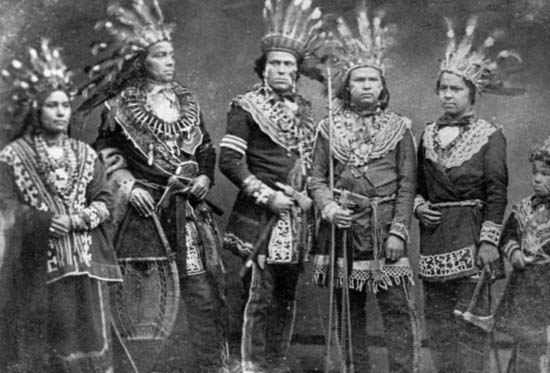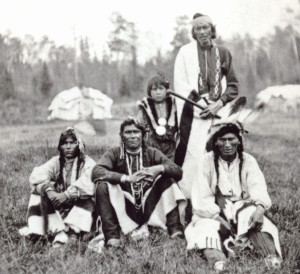|
La Pointe Band
La Pointe Band of Lake Superior Chippewa (Ojibwe: ''Mooningwanekaaning Gichigamiwininiwag'', "The Lake Superior Men at the Place Abundant with the Yellow Flickers") are a historical Ojibwa band of the Lake Superior Chippewa, located about what now is Madeline Island, Wisconsin. Their political successors apparent are: * Bad River Band of the Lake Superior Tribe of Chippewa Indians - descendants of the Traditional La Pointe Band * Red Cliff Band of Lake Superior Chippewa Red Cliff Band of Lake Superior Chippewa () is a band of Ojibwe Native Americans. The Red Cliff Band is located on the Red Cliff Indian Reservation, on Lake Superior in Bayfield County, Wisconsin. Red Cliff, Wisconsin, is the administrative cent ... - descendants of the Christian La Pointe Band Ojibwe in the United States Ojibwe governments Great Lakes tribes Native American tribes in Wisconsin {{NorthAm-native-stub ... [...More Info...] [...Related Items...] OR: [Wikipedia] [Google] [Baidu] |
Ojibwe Language
Ojibwe , also known as Ojibwa , Ojibway, Otchipwe,R. R. Bishop Baraga, 1878''A Theoretical and Practical Grammar of the Otchipwe Language''/ref> Ojibwemowin, or Anishinaabemowin, is an indigenous language of North America of the Algonquian language family.Goddard, Ives, 1979.Bloomfield, Leonard, 1958. The language is characterized by a series of dialects that have local names and frequently local writing systems. There is no single dialect that is considered the most prestigious or most prominent, and no standard writing system that covers all dialects. Dialects of Ojibwemowin are spoken in Canada, from southwestern Quebec, through Ontario, Manitoba and parts of Saskatchewan, with outlying communities in Alberta;Nichols, John, 1980, pp. 1–2. and in the United States, from Michigan to Wisconsin and Minnesota, with a number of communities in North Dakota and Montana, as well as groups that removed to Kansas and Oklahoma during the Indian Removal period. While there is some var ... [...More Info...] [...Related Items...] OR: [Wikipedia] [Google] [Baidu] |
Ojibwa
The Ojibwe, Ojibwa, Chippewa, or Saulteaux are an Anishinaabe people in what is currently southern Canada, the northern Midwestern United States, and Northern Plains. According to the U.S. census, in the United States Ojibwe people are one of the largest tribal populations among Native American peoples. In Canada, they are the second-largest First Nations population, surpassed only by the Cree. They are one of the most numerous Indigenous Peoples north of the Rio Grande. The Ojibwe population is approximately 320,000 people, with 170,742 living in the United States , and approximately 160,000 living in Canada. In the United States, there are 77,940 mainline Ojibwe; 76,760 Saulteaux; and 8,770 Mississauga, organized in 125 bands. In Canada, they live from western Quebec to eastern British Columbia. The Ojibwe language is Anishinaabemowin, a branch of the Algonquian language family. They are part of the Council of Three Fires (which also include the Odawa and Potawatomi) and ... [...More Info...] [...Related Items...] OR: [Wikipedia] [Google] [Baidu] |
Lake Superior Chippewa
The Lake Superior Chippewa (Anishinaabe: Gichigamiwininiwag) are a large number of Ojibwe (Anishinaabe) bands living around Lake Superior; this territory is considered part of northern Michigan, Wisconsin, and Minnesota in the United States. They migrated into the area by the seventeenth century, encroaching on the Eastern Dakota people who historically occupied the area. The Ojibwe defeated the Eastern Dakota and had their last battle in 1745, after which the Dakota Sioux migrated west into the Great Plains. While sharing a common culture and Anishinaabe language, this group of Ojibwe is highly decentralized, with at least twelve independent bands in this region. In the nineteenth century, the leaders of the bands negotiated together as the Lake Superior Chippewa with the United States government under a variety of treaties to protect their historic territories against land theft by European-American settlers. The United States set up several reservations for bands in this area u ... [...More Info...] [...Related Items...] OR: [Wikipedia] [Google] [Baidu] |
Madeline Island
''Madeline'' is a media franchise that originated as a series of children's books written and illustrated by Ludwig Bemelmans, an Austrian-American author. The books have been adapted into numerous formats, spawning telefilms, television series and a live action feature film. As a closing line, the adaptations invoke a famous phrase Ethel Barrymore used to rebuff curtain calls, "That's all there is, there isn't any more". The stories take place in a Catholic boarding school in Paris. The teacher, a nun named Miss Clavel, is strict but loves the children, cares for them, and is open to their ideas. Much of the media starts with the line "In an old house in Paris that was covered in vines, lived twelve little girls in two straight lines ..." The stories often are written entirely in rhyme, include simple themes of daily life, and the playful but harmless mischief of Madeline, which appeal to children and parents alike. Most of the books have several recurring themes, such as Miss Cl ... [...More Info...] [...Related Items...] OR: [Wikipedia] [Google] [Baidu] |
Bad River Band Of The Lake Superior Tribe Of Chippewa Indians
The Bad River LaPointe Band of the Lake Superior Tribe of Chippewa Indians or Bad River Tribe for short ( oj, Mashkii ziibii) are a federally recognized tribe of Ojibwe people. The tribe had 6,945 members as of 2010. The Bad River Reservation is located on the south shore of Lake Superior and has a land area of about in northern Wisconsin, straddling Ashland and Iron counties. Odanah, the administrative and cultural center, is located east of the town of Ashland on U.S. Highway 2. The reservation population was 1,545 in 2020. Most of the reservation is managed as undeveloped forest and wetland, providing a habitat for wild rice and other natural resources. History According to Anishinaabe prophecy, Gichi Manidoo, the Great Spirit, told the Anishinaabe people to move west from the Atlantic coast until they found the "food that grows on water." After a series of stops and divisions, the branch of Anishinaabe known as the Lake Superior Chippewa found wild rice near the Ch ... [...More Info...] [...Related Items...] OR: [Wikipedia] [Google] [Baidu] |
Red Cliff Band Of Lake Superior Chippewa
Red Cliff Band of Lake Superior Chippewa () is a band of Ojibwe Native Americans. The Red Cliff Band is located on the Red Cliff Indian Reservation, on Lake Superior in Bayfield County, Wisconsin. Red Cliff, Wisconsin, is the administrative center. Red Cliff is notable for being the band closest to the spiritual center of the Ojibwe nation, Madeline Island. As of November 2010, there were 5,312 enrolled members, with about half living on the reservation and the rest living in the city of Bayfield or the Belanger Settlement. History The Red Cliff Band is one of the successors of the Lake Superior Chippewa the group of Ojibwe that moved west along the south shore of Lake Superior from Sault Ste. Marie. According to tradition, the Ojibwe came from the Atlantic coast via several stopping places to Chequamegon Bay directed by the Great Spirit to find the "food that grows on water" (wild rice). Madeline Island represented the final stopping place. During the 17th century, Fren ... [...More Info...] [...Related Items...] OR: [Wikipedia] [Google] [Baidu] |
Ojibwe In The United States
The Ojibwe, Ojibwa, Chippewa, or Saulteaux are an Anishinaabe people in what is currently southern Canada, the northern Midwestern United States, and Northern Plains. According to the U.S. census, in the United States Ojibwe people are one of the largest tribal populations among Native American peoples. In Canada, they are the second-largest First Nations population, surpassed only by the Cree. They are one of the most numerous Indigenous Peoples north of the Rio Grande. The Ojibwe population is approximately 320,000 people, with 170,742 living in the United States , and approximately 160,000 living in Canada. In the United States, there are 77,940 mainline Ojibwe; 76,760 Saulteaux; and 8,770 Mississauga, organized in 125 bands. In Canada, they live from western Quebec to eastern British Columbia. The Ojibwe language is Anishinaabemowin, a branch of the Algonquian language family. They are part of the Council of Three Fires (which also include the Odawa and Potawatomi) and of ... [...More Info...] [...Related Items...] OR: [Wikipedia] [Google] [Baidu] |
Ojibwe Governments
The Ojibwe, Ojibwa, Chippewa, or Saulteaux are an Anishinaabe people in what is currently southern Canada, the northern Midwestern United States, and Northern Plains. According to the U.S. census, in the United States Ojibwe people are one of the largest tribal populations among Native American peoples. In Canada, they are the second-largest First Nations population, surpassed only by the Cree. They are one of the most numerous Indigenous Peoples north of the Rio Grande. The Ojibwe population is approximately 320,000 people, with 170,742 living in the United States , and approximately 160,000 living in Canada. In the United States, there are 77,940 mainline Ojibwe; 76,760 Saulteaux; and 8,770 Mississauga, organized in 125 bands. In Canada, they live from western Quebec to eastern British Columbia. The Ojibwe language is Anishinaabemowin, a branch of the Algonquian language family. They are part of the Council of Three Fires (which also include the Odawa and Potawatomi) and of ... [...More Info...] [...Related Items...] OR: [Wikipedia] [Google] [Baidu] |
Great Lakes Tribes
Great may refer to: Descriptions or measurements * Great, a relative measurement in physical space, see Size * Greatness, being divine, majestic, superior, majestic, or transcendent People * List of people known as "the Great" *Artel Great (born 1981), American actor Other uses * ''Great'' (1975 film), a British animated short about Isambard Kingdom Brunel * ''Great'' (2013 film), a German short film * Great (supermarket), a supermarket in Hong Kong * GReAT, Graph Rewriting and Transformation, a Model Transformation Language * Gang Resistance Education and Training Gang Resistance Education And Training, abbreviated G.R.E.A.T., provides a school-based, police officer instructed program that includes classroom instruction and various learning activities. Their intention is to teach the students to avoid gang ..., or GREAT, a school-based and police officer-instructed program * Global Research and Analysis Team (GReAT), a cybersecurity team at Kaspersky Lab *'' Great!'', a 20 ... [...More Info...] [...Related Items...] OR: [Wikipedia] [Google] [Baidu] |





